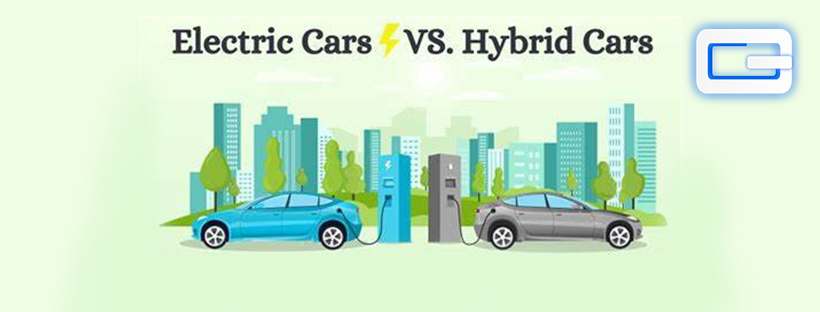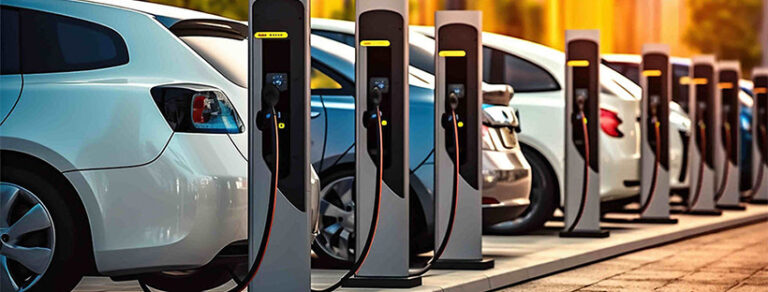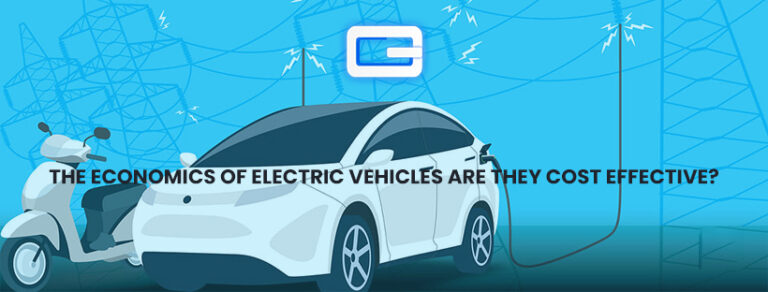In recent years, the automotive industry has undergone significant advancements, particularly in the area of electric and hybrid vehicles. As we step into 2024, the choice between electric vehicles (EVs) and hybrid vehicles continues to be a topic of interest for consumers seeking to make environmentally conscious and economically sound decisions. In this blog we will discuss the key differences, benefits, and considerations for choosing between electric and hybrid vehicles in 2024.
Understanding Electric Vehicles (EVs)
Electric vehicles are powered entirely by electricity, drawing energy from rechargeable batteries. These batteries are charged via external power sources, such as home chargers or public charging stations. EVs are known for their zero tailpipe emissions, which greatly minimizes their ecological footprint compared to traditional gasoline-powered cars.
Understanding Hybrid Vehicles
The motor of a hybrid vehicle is powered both by an internal combustion engine and an electric motor. There are two main types of hybrids: conventional hybrids and plug-in hybrids. Conventional hybrids use regenerative braking and the internal combustion engine to recharge the battery, while plug-in hybrids can be charged from an external power source, similar to EVs. Hybrids offer a middle ground, providing some of the benefits of electric driving with the extended range and flexibility of gasoline.
Environmental Impact
One of the primary motivations for choosing an electric or hybrid vehicle is the potential reduction in environmental impact. EVs produce zero tailpipe emissions, meaning they do not contribute to air pollution or greenhouse gas emissions during operation. This is particularly significant in urban areas, where air quality can be a major concern.
Hybrids, while more environmentally friendly than traditional gasoline vehicles, still produce emissions when the internal combustion engine is in use. However, they are generally more fuel-efficient and emit less pollution than their non-hybrid counterparts. Plug-in hybrids offer the option of driving short distances on electric power alone, further reducing their emissions footprint.
Cost Considerations
The cost of purchasing and operating electric and hybrid vehicles can vary significantly. Upfront, EVs tend to be more expensive than hybrids due to the high cost of batteries. However, the total cost of ownership for EVs can be lower over time, thanks to reduced fuel costs and lower maintenance expenses. Electric vehicles have fewer moving parts than internal combustion engine vehicles, leading to fewer mechanical issues and lower maintenance costs. Explore the analysis of electric vehicle economics in our blog The Economics of Electric Vehicles: Are They Cost-Effective?
Hybrids, typically less expensive than EVs, offer a balance between initial purchase price and long-term savings. They provide better fuel efficiency than traditional vehicles and can save money on fuel costs, particularly for city driving where the electric motor is more frequently used. Additionally, plug-in hybrids can reduce fuel expenses even further by allowing short trips to be powered entirely by electricity.
Range and Charging Infrastructure
Range anxiety, or the fear of running out of battery power, has been a significant concern for potential EV buyers. However, advancements in battery technology have led to substantial increases in the range of modern electric vehicles, with many models now offering over 300 miles on a single charge. Moreover, the charging infrastructure has expanded considerably, with more public charging stations and fast chargers available than ever before.
Hybrids, with their combination of electric and gasoline power, do not suffer from range anxiety. Conventional hybrids can travel as far as traditional gasoline vehicles, while plug-in hybrids offer the flexibility of both electric and gasoline power. This makes hybrids particularly appealing for those who frequently undertake long-distance journeys or live in areas with limited charging infrastructure.
Driving Experience and Performance
The driving experience differs between electric and hybrid vehicles. EVs are known for their smooth and quiet operation, providing instant torque and acceleration without the noise and vibration associated with internal combustion engines. This can make driving an EV a unique and enjoyable experience.
Hybrids offer a blend of electric and gasoline power, which can result in a different driving feel. While they can operate in electric-only mode at low speeds, the transition between electric and gasoline power is typically seamless. Plug-in hybrids can provide a near-EV experience for short trips while offering the flexibility of gasoline power for longer journeys.
Incentives and Regulations
Government incentives and regulations play a crucial role in the adoption of electric and hybrid vehicles. Many countries offer tax credits, rebates, and other incentives to encourage the purchase of EVs and hybrids. These incentives can significantly offset the higher upfront cost of electric vehicles. Additionally, stricter emissions regulations and the phasing out of internal combustion engine vehicles in some regions make EVs and hybrids more attractive options.
Future Prospects
Looking ahead, the future of electric and hybrid vehicles is promising. Continued advancements in battery technology, charging infrastructure, and government support are likely to further enhance the appeal of EVs. Hybrids, particularly plug-in hybrids, will continue to play a role as a transitional technology, bridging the gap between traditional gasoline vehicles and fully electric transportation.
As we ponder the promising future of electric and hybrid vehicles, it’s intriguing to consider how anticipated EV market trends in 2024 will reflect continued advancements in battery technology, charging infrastructure, and government support.
Conclusion
Choosing between an electric and a hybrid vehicle in 2024 depends on various factors, including environmental concerns, cost, driving habits, and available infrastructure. Electric vehicles offer the benefit of zero emissions and lower long-term costs, making them an excellent choice for those committed to sustainability. Hybrids, with their flexibility and extended range, provide a practical solution for those who are not yet ready to make the full switch to electric power.
Ultimately, both electric and hybrid vehicles represent important steps towards a more sustainable and efficient future in transportation. By carefully considering your individual needs and the advancements in each technology, you can make a wise decision that aligns with your lifestyle and environmental goals.




